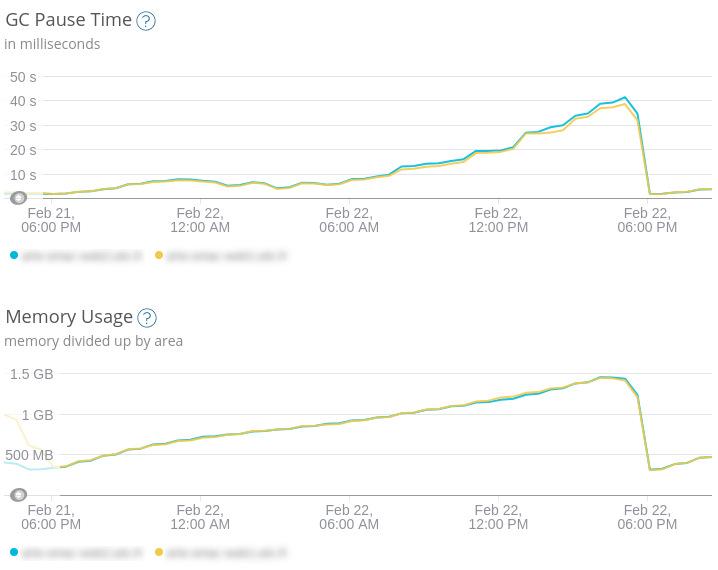
Here's the thing about JavaScript runtime benchmarks: they're mostly synthetic garbage that has fuck-all to do with your actual app. But the numbers are still useful if you know how to read them without drinking the performance Kool-Aid.
These Tests Run on Monster Servers You Don't Have
The TechEmpower benchmarks run on absolute beast machines - Intel Xeon with 32 cores and 32GB RAM. That's way beefier than your MacBook Pro or that AWS t2.micro you're running your side project on.
Reality Check on Test Environment:
- 32 cores (your laptop has 8 if you're lucky, and 4 are thermal throttling)
- 32GB RAM (your production server probably has 4GB and Slack is using 2GB)
- 10Gbps dedicated network (your Docker containers are fighting over 100Mbps)
- Multiple load generators (you'll
ab -n 1000and call it testing) - 15-minute tests with warmup (users close the tab after 3 seconds)
Bun Absolutely Annihilates Node.js (But There's Always a Catch)
Performance Comparison (Requests per Second - tested on identical hardware):
Bun v1.2.21: ████████████████████████ 68,000
Deno v2.4.5: ████████████ 29,000
Node.js v22.19.0: ████████ 14,000
The raw numbers are brutal for Node.js: Bun hits 68,000 requests per second while Node.js with Express manages a pathetic 14,000. That's nearly 5x faster. If you're still using Express and wondering why your API feels sluggish, this should hurt.
Deno sits in the middle at 29,000 requests per second, which is respectable but not earth-shattering. When you bump up the concurrency, Bun hits 110,000 requests per second - at this point Node.js looks like it's running on a potato.
Why Bun is so damn fast: It's built on JavaScriptCore (Safari's engine) instead of V8, and their HTTP server is written in Zig, not JavaScript. Meanwhile, Node.js is still dragging around decades of legacy bullshit that makes everything slower than it needs to be.
Your AWS Bills Will Thank You
Cold Start Performance:
- Bun: 50-80ms startup ⚡
- Node.js: 150-200ms startup 🐌
- Deno: 120-180ms startup

Node.js is a memory hog. I learned this the hard way when our production server kept running out of memory every few hours with this lovely error: JavaScript heap out of memory. Spent a whole weekend debugging what turned out to be event listeners that never got cleaned up. Bun uses 3x less memory than Node.js for the same workload, which means fewer 3am pages about OOM crashes.
The numbers are real: in production, switching to Bun saves 20-30% on memory usage. That translates to actual dollars when you're running containerized apps that need less RAM per pod.
Why Node.js eats so much memory: It's carrying around a bunch of legacy crap for backwards compatibility. Every Buffer gets duplicated, every string gets converted multiple times, and V8's garbage collector is complex as hell. Bun stripped out all that cruft.
npm install Takes Forever and Breaks Randomly
The most painful part of Node.js development? Waiting for npm install to finish while your CPU fan sounds like a jet engine. It takes 2 minutes on a good day, and half the time it fails with some cryptic EACCES: permission denied error or ETIMEOUT bullshit.
Bun install finishes in 8 seconds for the same packages that take npm 120 seconds. That's not just a little faster - that's life-changing for your development workflow. CI/CD pipelines that took 5+ minutes now finish under 2 minutes.
Cold start times matter for serverless: Bun boots in 50-80ms, Node.js takes 150-200ms. If you're running AWS Lambda, faster cold starts mean 30-50% lower bills for short functions. Check out serverless performance optimization tips.
These Benchmarks Don't Mean Shit if Your App is Database-Bound
Here's the reality check nobody talks about: real-world testing with JWT validation, PostgreSQL queries, and PDF generation shows Bun only 37% faster than Node.js, not 5x.
Why? Because your app spends most of its time waiting for the database to return results, not parsing HTTP requests. When PostgreSQL takes 50-200ms to execute a query, the runtime's 1-5ms overhead becomes irrelevant.
The real performance bottlenecks in your app:
- Database queries that don't use indexes properly
- External API calls with 100ms+ latency
- File system operations that block the event loop
- JSON parsing for massive payloads
- Image processing or other CPU-heavy tasks
If you're database-bound, optimize your queries with `EXPLAIN ANALYZE` before switching runtimes. If you're API-bound, add Redis caching. The 3x performance gains from switching to Bun only matter if JavaScript execution is actually your bottleneck.
So where do these impressive numbers come from? Let's break down the actual performance data...
